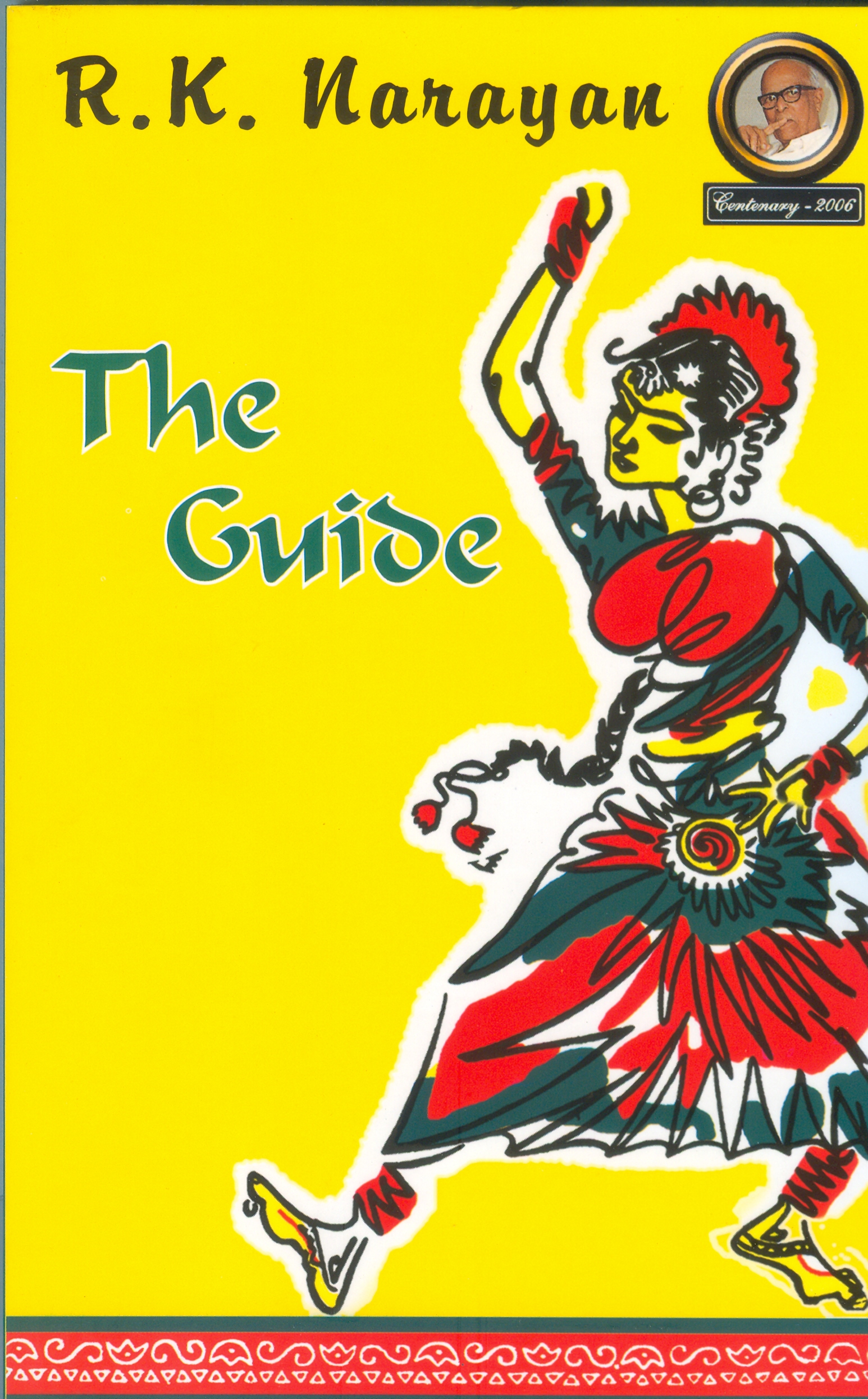'The Guide' is a 1958 novel written by R.K. Narayan, covering the life of Raju, a man whose control over life astrays away from him, leading him into new venues and unforeseen consequences. Through this character, R.K. arrays many complex human emotions in the form of a strange but captivating story, while also exposing the Indian society in a much nuanced manner.
The first thing which caught me off guard and interested me was the personality of Raju. Rather than applying a purely virtuous character upon him, the author rather did the opposite, his crookedness increasing towards the end, until he is heralded as a sage. This is a man who shows how one can win and lose everything over abstract ideas like love, yet that I cannot name this relationship between Raju and Rosie, for it definitely isn't a romantic one. This is an aspect in which I felt hadn't been explained properly.
Rosie, on the contrast of Raju, is a purely passion-seeking character, admiring and wanting to pursue dance, and for the same reason being left off by her husband. She finds no connection with him, but at the same time wants to be a good wife, and from the entire story, we can find this inner incongruity within her. And this arouses the several questions that one may have about her complete integrity and what she saw in Raju exactly.
Finally there is Marco, who is the husband of Rosie and who is against her fulfilling her passion. He is throughout described as a boring and rather an emotionless character who is after cave paintings and rewriting history. And while the story has him lingering for a while, Marco plays more of a passive role, and funnily enough, the author(as Raju) only assumes his name is 'Marco' as he seems like a traveller, which is a bit unbelieving since the man had been Raju's customer when he was a tour guide as well as being an accuser in a later litigation in court, as the story approaches the end.
The book is an accurate representation of how a person can get lost over his own emotions. Raju here thinks with more emotions than logic, and doesn't sense his life slipping away beneath him, pushing him towards uncharted events from which he never tries to escape until the end. His insecurity is what which leads him into unwanted consequences, and it is his unwillingness to abide by anybody that leads him into his own pitfall.
Every person in life should be his own guide, and here Raju too was one. From the shopkeeper who guided his family to the tourist who guided visitors to the backstage boy who guided Rosie, the passionate dancer to the sage who guided the peasants, finally he guides his own life to his destiny. The guide couldn't guide his own life, and all this makes the title even more ironical and meaningful.
The ending of the story is worth mentioning, because the author leaves it up to the reader to choose the fate of Raju. The line goes as follows: '"Velan, it's taining in the hills. I ccan feel it coming up under my feet, up my legs---" He sagged down.'. Here, the rain could have come up the hills, or it could be the hallucination of a fatigued man. And Raju could have died from 11 days of starvation, or he could have just fallen unconscious. I believe with the former and the latter of the two statements, one for the sake of optimism and the other for the sake of reason.
What I liked about the book:
- R.K.'s storytelling enlargened the canvas and printed the visual in the head of the livid backgrounds under which the story occured.
- The characters possessed a stable and constant emotional mindset. Raju's selfishness grew no remorse in himself throughout the story, so did Rosie's innocence and Marco's care for word and order.
- Under the hood, the story exposed the Indian society filled with influences, even in the artistic fields; while also potraying through Rosie that true artistic mentality is still present.
What I didn't like about the book:
- The transitions at many points were pretty choppy. The book follows a non-linear storytelling pattern, and until the 7th chapter, the setting switches from Raju's pre- and post-prison life in each chapter. Intitially, I got a tad bit confused over this, but it was easy to overcome. Another instance of such a transition is when the shopkeeper Raju suddenly turns into a guide Raju, I felt the provision of a context was missing at that point, almost assuming Raju was also a guide in the first place.
- Many characters lacked a complete overview of their personality or mindset. As I said, Marco was described a bit emotionless and even Raju's mother didn't have much character psychology behind her.
- Raju and Rosie had a special relation within each other which neither of them could explain properly throughout the story. By sake of love or not, one doesn't know why Raju pledged his life to Rosie's passion; and Rosie too saw in Raju a saviour or someone that could make her dreams a reality, while not comphrehending his societal and personal future, which is contrasting to her otherwise moralistic character. The fact that she could understand Raju's intentions and last sentence in Pg. 92(end of Chap. 5) makes it even more confusing.
'The Guide' has a perplexing storyline highlighting influences on both societal and psychological terms. The more you think about it, the more it seems like something is odd and that the story is just a metaphor that hides its content beneath it.
